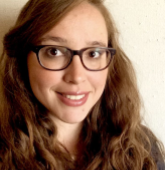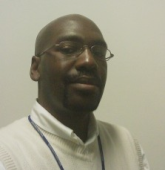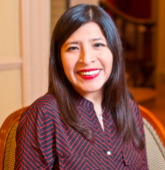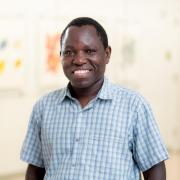The 2016-'18 Cohort:
|
|
Emma Amador
Emma Amador is a historian of Puerto Rico and Puerto Ricans in the United States, whose research focuses on women, gender, and sexuality. She is an Assistant Professor of History and Latino/a, Caribbean, and Latin American Studies at the University of Connecticut, Storrs with a PhD from the University of Michigan, Ann Arbor, an MA from UConn, and a BA from Sarah Lawrence College. Amador is currently working on a book manuscript that explores the history of welfare, territorial social citizenship, and welfare rights in Puerto Rico and the Puerto Rican diaspora. This project examines how the U.S. welfare state became a site where Puerto Ricans have struggled for social justice, labor reform, and decolonization. Her article “Organizing Puerto Rican Domestics: Resistance and Household Labor Reform in the Puerto Rican Diaspora after 1930” was published in ILWCH: International Labor and Working-Class History and a second article, “‘Women Ask Relief for Puerto Ricans’: Territorial Citizenship, the Social Security Act, and Puerto Rican Communities, 1933-1939” was published in LABOR. She has taught courses in Latino/a history and gender history, as well as Caribbean and Latin American History. She has received research and writing support from the Ford Foundation, the Rackham Graduate School of the University of Michigan, the Center for Puerto Rican Studies at Hunter College, CUNY, and the Duke University SITPA Program.
|
|
|
Vanessa Fabien
As a historian and environmental justice scholar, my research focuses on 19th and 20th century African American history and culture with particular emphases on religion, gender, and environmental ethics. My research interlaces African Americans’ environmental thoughts and activism into the historical narrative in environmental history through situating their philosophical standpoints, cultural production, agricultural practices, and political activism in conversation with the conventional discourse.
More info, click here. |
|
|
Christopher Harris
Dr. Christopher Harris is currently an Assistant Professor of Electrical and Computer Engineering at Auburn University. He received his Ph.D in Electrical and Computer Engineering from the Department of Electrical Engineering and Computer Science at the University of California, Irvine where he completed his research under the advisement of Dr. Ian G. Harris and in affiliation with the Center for Embedded and Cyber-physical Systems. Dr. Harris also holds an MS in Electrical Engineering from the University of Notre Dame, a BS in Computer Engineering from the University of Alabama in Huntsville, and a BS in Applied Mathematics from Oakwood University.
|
|
|
Mariaelena Huambachano
Mariaelena Huambachano is an interdisciplinary Indigenous scholar originally from Peru and a citizen of New Zealand; her work focuses on the intersections of food politics, environmental, and Indigenous studies. Focusing on comparative and transnational Indigenous Traditional Ecological Knowledge (TEK) systems of Oceania, Latin America, and North America, her work explores the politics of food security as a human rights issue and food sovereignty as a social-political issue, and how that shapes and contributes to food security and environmental policies.
Her current book project entitled "Global Indigeneity and Food Politics" is an ethnographic exploration of how the TEKs and frameworks of food security governance of Māori of Aotearoa - New Zealand and Andean of Peru can contribute to improving food security. This study used the ‘Khipu Model’ an innovative Indigenous research framework developed by Mariaelena. The book pioneers an "Indigenous Food Security Framework" underpinned by cultural and environmental indicators of well-being that warrants consideration in public policy because it can aid in addressing the issues of food security and environmental impact on Indigenous communities that have longlasting spiritual, cultural and physical relationships with land and water.
Mariaelena has established an international community-engaged project entitled the ‘Right to Food Security/Sovereignty’ at Brown University. More information on this exciting project can be found on https://therightofoodsovereignty.wordpress.com Her scholarly work is informed and shaped by her cross-cultural experiences and community-based research work supporting social and environmental justice movements for the furtherance of local and Indigenous food movements, Indigenous sovereignty and self-determination, economic development, and environmental stewardship.
|
|
|
Richard Mariita
Richard Mariita was born in Bogesaka, Kisii South, Kenya. He attended Bogesaka and Rianchaga elementary schools prior to joining Nyamagwa Boys’ High School. After receiving his B.S. in biological sciences he received the Vice-Chancellor's scholarship for his MS (Microbiology) from Kenyatta University, Kenya. He had lots of fun working in the lab of his longtime friend and mentor, Prof. Paul Okemo. Richard attended Auburn University and earned his Ph.D in 2016. For his Ph.D in the Moss lab, his role was to use bioinformatic tools to map the dispersion of antibiotic resistance determinants in the environment. While at Auburn, he was a Cell and Molecular Biosciences (CMB) as well as an NSF/EPSCoR fellow. He attended 10 regional and national conferences, the prestigious Microbial Diversity course at the MBL in Woods Hole, MA and STAMPS (also in Woods Hole). He received 16 awards through his 4 year (2012-2016) PhD program at Auburn University, among them Dean’s Research best student, PhD category. He joined Brown University and is currently in the Sello lab at the Chemistry Department as Presidential Diversity Postdoctoral Fellow. His interests include Molecular Biology and Post-translational regulation, Genomics, Microbial Ecology and Host-Microbe Interactions. |
|
|
Diego Milan
Presidential Diversity Postdoctoral Fellow at Brown University, where I am completing my first book. Tentatively titled Laughter’s Fury: The Double Bind of Black Laughter, it examines how enduring legacies of racism inform sociocultural understandings and practices of laughter. I have presented on topics such as the deconstruction of racial whiteness in Frank J. Webb’s The Garies and Their Friends as well as laughter in Chester Himes's detective fiction.
Research for this work has been supported by grants from the Tufts Graduate School of Arts and Sciences, the Social Science Research Council, and the Woodrow Wilson National Fellowship Foundation.
More info, click here. |






